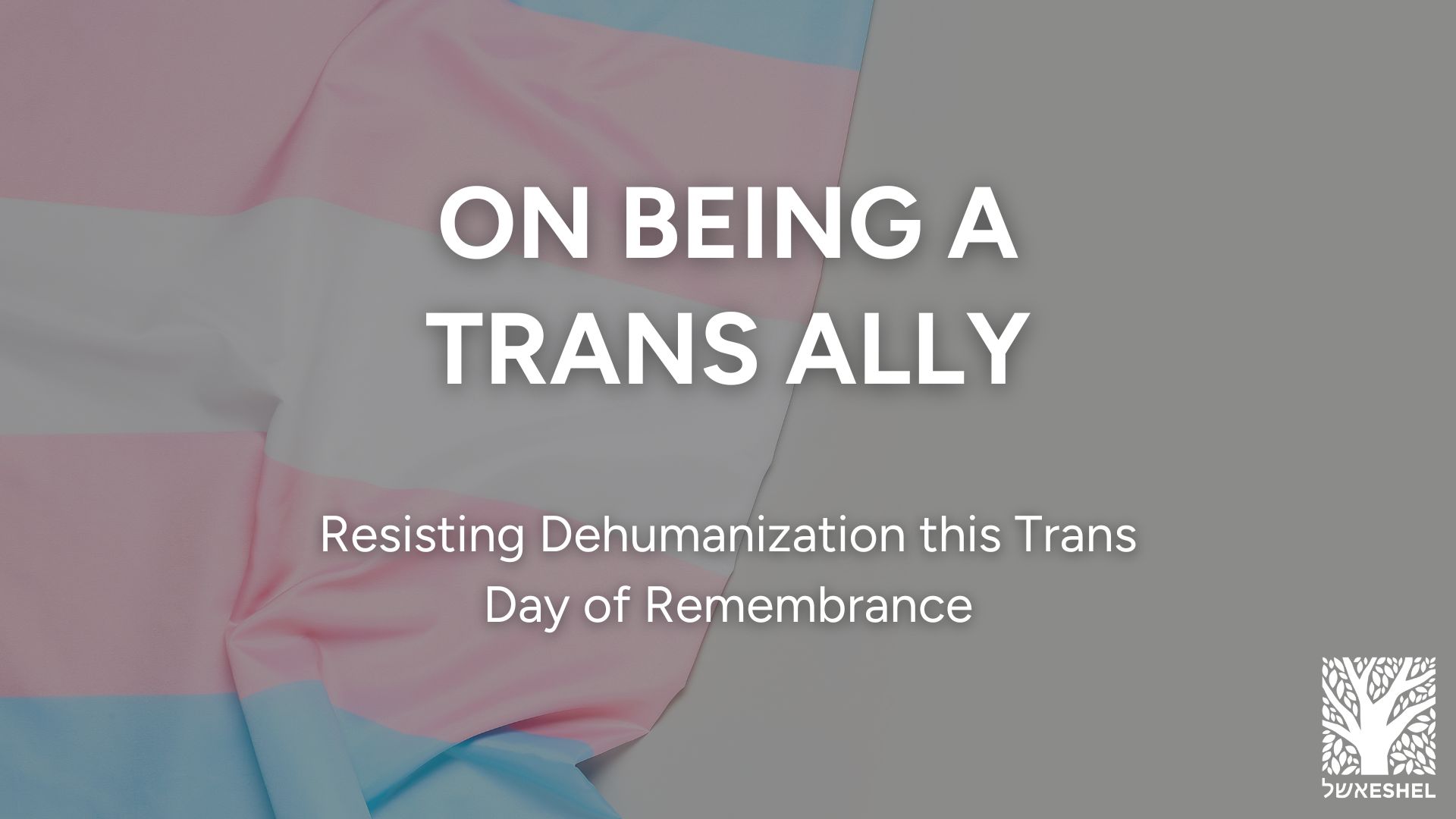
As Jews, we know the dangers that come from dehumanizing rhetoric. For thousands of years, antisemitism has flourished by asserting that we are less human, somehow other than the rest of the world. When people view us as animals, or a plague, or an infestation, it is easy for those in power to argue that we should be excluded, distrusted, and silenced.
As queer people, we have similarly experienced the harms of being othered, excluded, and feared. We remember the Lavender Scare, when “homosexuals” (lesbians and gay men, as well as anyone viewed as a homosexual, like bi and trans people) were systematically removed from government services. We have lived through decades of being called “groomers,” and calls for gay and lesbian teachers to be banned from working in schools. The playbook hasn’t changed – only the primary target has shifted.
I am deeply concerned by the increased dehumanization of the trans community that I have witnessed in the past few months and years. Anti-trans rhetoric has grown more vicious, more widespread, and more dangerous.
One facet in the fight against dehumanization, resisting those who lump all trans people into one box and label us as a threat, is humanization.
Our community, especially our allies, have to make it clear that each of us is an individual, complex, and flawed human being. Our tradition makes it clear that every soul is an entire world. Whether we are kind or cruel, fierce or gentle, honest or deceitful, is a choice that each of us makes.
How can cis allies better educate themselves and be prepared to fight dehumanization with humanization? Get to know the trans people in your life better – what makes them unique and what they need in order to feel safe. Read literature by trans authors or featuring trans characters. Harvey Milk, who led the opposition to California’s attempt to ban gay teachers, famously said “Coming out is the most political thing you can do … Once they realize that we are indeed their children, that we are indeed everywhere, every myth, every lie, every innuendo will be destroyed once and all.” Coming out does not only have to mean those of us who are trans sharing our own truths. When cis allies get to know our stories and share them, these lies and myths are replaced with the diversity of our reality.
But is it enough to talk about trans people and our humanity? No. When trans people are facing attacks on our rights to access healthcare, not be discriminated against in the workplace, and more, talking is not enough. This Trans Day of Remembrance I hope we can do more than remember the trans people who died by violence. I hope we can change the material conditions that allow that violence to occur.
Employers need to step up and hire trans people, give more than the bare minimum legal workplace protections, and ensure our healthcare needs are insured. Politicians need to fight anti-trans legislation, even when it is politically unpopular, and fight in favor of better legal protections. Teachers and administrators need to work to meet the needs of all their students. And regular everyday people who have time, skills, access, power, or money to spare need to work to change the conditions that encourage anti-trans violence in the ways that they can. When we push back against dehumanizing anti-trans language we overhear at kiddush, when we donate or volunteer to support the trans community, and when we use our voices to advocate for justice, our small actions add up to support structural change. Pirkei Avot teaches that we are not obligated to complete the work alone, but neither are we free to cease from it.
Jamie
